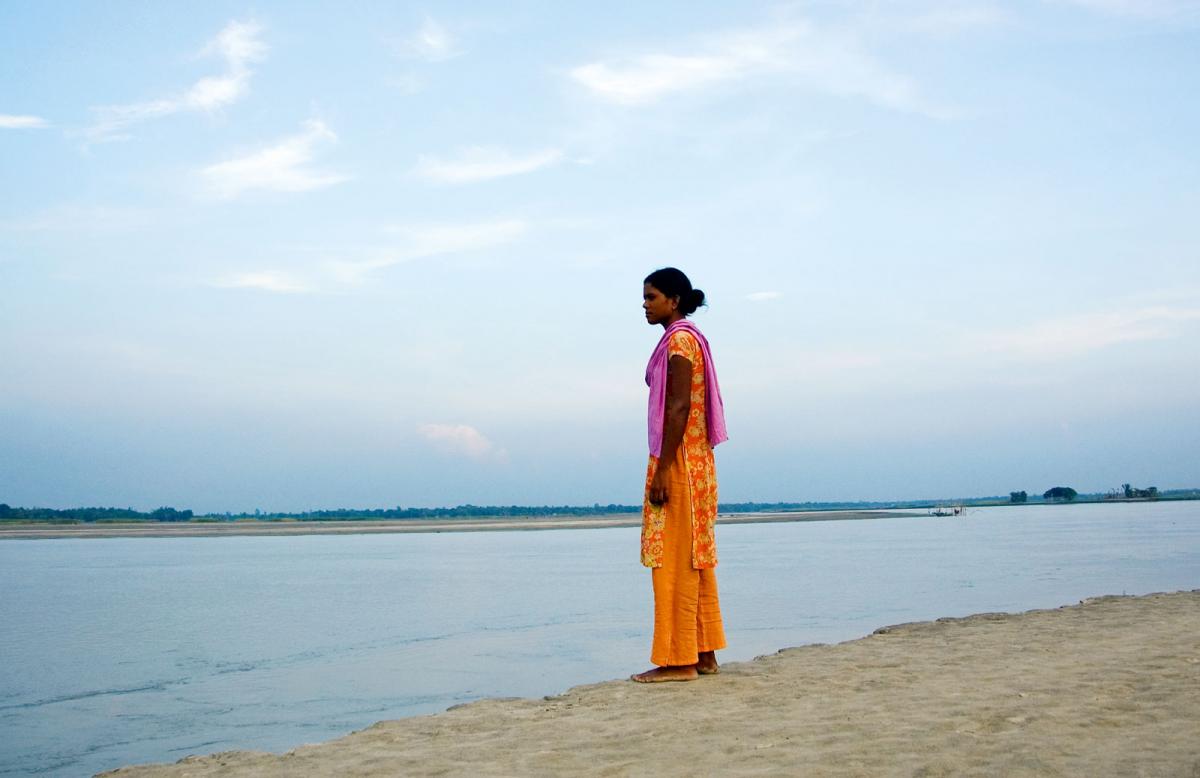For the best listening experience, use headphones. As you listen to Rebeka's story, think about whether any parts of her life – her feelings and experiences – remind you of your own life or someone you know. Has anything similar happened to you or someone close to you? Pay attention!

Rebeka saw her whole village disappear during horrible floods in Bangladesh.
Download the audio file to your device.
“We have always had flooding here in Bangladesh, but in recent years it has become much worse. It seems like there’s something wrong with nature. I’m scared that my whole village will disappear. I’m also scared of dying”. It’s Rebeka who says this. She is 14 and lives by the Dhaleshwari river in Bangladesh.
Bangladesh is one of the countries in the world most severely affected by climate change. Every year, thousands of schools and school routes are destroyed as a result of flooding. Children suffer most of all. Almost 20 million children in Bangladesh are, like Rebeka, affected by the consequences of extreme heat, drought, cyclones and flooding due to climate change.
“Our whole village flooded in three days”, says Rebeka.“Even though I live a couple of hundred meters from the river, the water level still came halfway up our house. We tried to stay as long as possible in the house, but finally, my dad and my big brother had to build a raft. Later, we even cooked our food on the raft since our kitchen was flooded too”.
After a week of flooding, Rebeka decided to wade to the back yard of the house to fetch hay for the family’s cows. “Sudddenly, a snake fell out of the haystack and into the water”, she says. “It bit my foot. I got dizzy and I almost fainted, but shouted for my mum and dad who came running. They tied a piece of fabric tightly around my leg below the knee to stop the poison from spreading through my body”.
“Then, they carried me to a boat, and we went to see a man who could suck out the poison. I was terrified that I was going to die. A neighbor was bitten around the same time, and she died”.
“Many people die here because we have to travel so far to get to a doctor”, Rebeka explains, “and it costs a lot of money. Things are hardest for us when the floods come, because so many people get sick”.
A few days after Rebeka was bitten she started to feel better, but the floods lasted for many more months. During that time, almost all schools were closed – Rebeka’s school too. “The schools were destroyed, and we also couldn’t get there because of all the water. It’s so awful not to be able to go to school”, Rebeka says. “We’re missing out on our education and that’s no good. Without a good education it’s impossible to have a decent standard of living here in Bangladesh”.
“Education is most important for us girls. If a girl completes her education, she has a
much better chance of a decent life. She can make her own decisions and other people,
even family members listen to her much more. When I grow up I want to be a teacher”, Rebeka continues. “I’ll fight to ensure that all children, especially. poor children and girls, have the chance to go to school. Many girls my age are already married. I think that’s so wrong!”
“We have always had floods in Bangladesh, but they’ve become much worse in recent years”, Rebecka explains. “When the water rises, huge areas of land collapse into the river. Buildings and people are dragged along, and children die. If things carry on like this, I’m afraid my whole village will disappear”. “The flood was a catastrophe. I don’t know what will happen to us, and I’m worried about the future”.